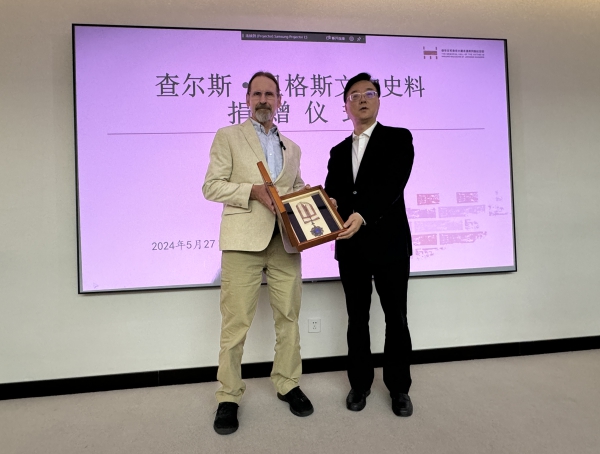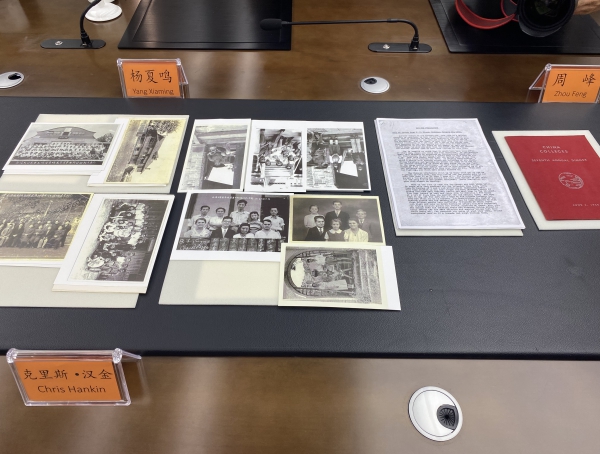Descendants of Nanking Safety Zone member donates relics to the Memorial Hall of the Victims in Nanjing Massacre by Japanese Invaders

On May 27,Chris Hankin,the great-grandson of Charles Riggs, a key member of the International Committee for the Nanking Safety Zone, donated eight relics to the Memorial Hall of the Victims in Nanjing Massacre by Japanese Invaders.
He was also representing his father, David Hankin, and Steven Hankin, another grandson of Charles Riggs, and Moriah Lefebvre, great-grand daughter of Charles Riggs. They took the long flight from Seattle to join Chris in Nanjing on May 25 for the donation ceremony.
This event followed Xinhua Daily reports on Chris' exploration of the Nanjing Massacre history last year, which received worldwide attention, highlighting the importance of exchanges between the Chinese and American peoples. The coverage featured the bilingual documentary “History is Still Alive,” released on December 12, 2023, which helped more people understand the story of Charles Riggs in protecting Chinese people during a dark period. Chris, also known by his Chinese name Lin Kui, expressed that his family members are all very willing to preserving the history.

The donated items include a Blue Jade Medal and letters documenting the atrocities committed by the Japanese army after capturing Nanjing.
In 1938, Charles Riggs and 21 other foreigners were awarded the Blue Jade Medal for their heroic role in establishing the safety zone. He returned to the United States in May 1939 and left the medal to his eldest son, Fred Riggs, after his death. The medal was subsequently kept by Fred’s daughter Gwendolyn. This marked the first time the Memorial Hall had collected the medal.
"The museum only had a photo of the order, and this donation will allow the public to further understand that period of history," said Stephen.
Also donated was a copy of a family letter written by Riggs to his wife on January 15, 1938. The letter detailed Riggs' observations and experiences in Nanjing from December 1937 to January 1938, providing further evidence of the shocking violence by Japanese soldiers.
The donated items are of significant historical and research value, showcasing Riggs' experiences in China and reflecting the stories of the safety zone members who risked their lives to aid refugees during the Nanjing Massacre, noted Professor Yang Xiaming of the Department of World Economy and Politics at the Jiangsu Administration Institute, also a researcher at the National Memory and International Peace Research Institute.
Contact us at english@jschina.com.cn